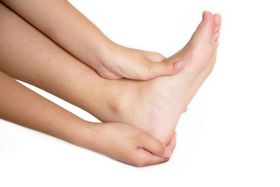Upstep Answers
Our team answers your questions about the causes and treatment of various podiatric conditions, including plantar fasciitis, flat feet, foot pain, and the use of custom orthotics.
Related Articles

DIY Foot Baths For Sore Feet
Upstep Staff
December 9, 2024

Causes of Burning Feet
Babafemi Adebajo
December 17, 2024

Heel Bursitis Home Treatment Guide
Babafemi Adebajo
July 2, 2022

Best Insoles for Hockey Skates for Enhanced Balance & Stability
Janik Sundstrom
December 6, 2024

How to Correct Supination: Stretches, Exercises, Orthotics, & More
Babafemi Adebajo
July 10, 2025
Recent Posts
Blog
Babafemi Adebajo
5 Daily Exercises for Peripheral Neuropathy Relief
Blog
Janik Sundstrom
The Amazing Benefits of Rolling Out Your Feet
Blog
Janik Sundstrom



